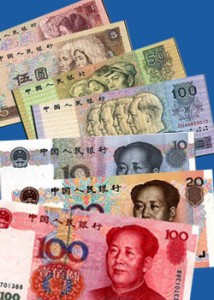Greece: The Economic Crisis Continues (Christodoulou)
 Saturday, August 14, 2010 at 6:00
Saturday, August 14, 2010 at 6:00  Eleni Christodoulou writes for EA:
Eleni Christodoulou writes for EA:It was only last week, after panic and media outbursts over the financial crisis, that the words "good", "progress", and even "strong began to appear beside "Greece". This combination, almost an oxymoron to our ears, came after an assessment by a team from the European Union, European Central Bank and International Monetary Fund, preceded by a two-week audit, in which the lenders said Greece had made “impressive” progress in revamping its economy, from restructuring pensions to overhauling the tax system.
This report cleared the way for Athens to receive the next installment of its bailout package. The New York Times described it as "the latest sign that the crisis surrounding European finances was starting to ebb". The BBC reported, "Greece's efforts to tackle its public deficit have had a 'strong start', the International Monetary Fund and European Union have said."
The report added that the Greek government had made "impressive" efforts regarding structural reforms, trimming pensions and continuing efforts to reform the labour market. "The programme has made remarkable progress," said Servaas Deroose, a representative for the European Commission.
Earlier this year, the media was flooded by negative waves of heavy criticism, fear of potential spread of the crisis, and even hostility against Greece –--- both the state and its people. Pessimism loomed, and it seemed that Greece’s default was inevitable, a financial disaster simply waiting to happen.
Gradually a decline in these media outbursts became apparent, reflecting perhaps a period of behind-the-scenes workings between Greek and international financial and political experts. Still, an editorial of The New York Times criticised European leaders for going "from panic to complacency" in a few months and warned that there is no time for such attitudes as "the eurozone crisis is not over".
Complacency was followed by optimism and relief, only for the short-lived nature of this euphoria to be exposed. Stories are once again placing Greece side-by-side with gloomy verbs and nouns: "shrank", "decline", and, of course, "unemployment".
The BBC, headlining, "Greek Economy Shrinks a Further 1.5%", says a further contraction of the Greek economy in the second quarter of the year suggests an accelerated rate of recession. Reduced government spending, an outcome of the aggressive austerity policies, accompanied not only a decline in Gross Domestic Product but also a continuing rise in unemployment figures.
According to the Greek Statistics Agency, there was a rise of 43.2% in the number of unemployed in May, compared with the same month last year. This effectively means 181,784 people who were employed in 2009 are now without a job. Even worse, unemployment is due to rise further.
Anyone who lives in Greece has a drama of job loss to tell, either their own story or that of a person related to them. More than one in three in the 15-24 age bracket are out of work: that should worry the social services, given that a high proportion of those involved in violence during the recent strikes were youngsters.
The latest strike, that of the Greek truck drivers, paralysed the country for almost a week. The strike, which began on 25 July at the height of the holiday season, protested planned reforms aimed at liberalising the freight industry. The havoc created by the lack of fuel not only affected citizens who could not get to their jobs but also destroyed food exports, such as the peach industry, and crippled the tourist industry, leaving thousands stranded at their destinations. The government was forcedin the end to call in the army to ensure supplies of fuel to airports, hospitals, and power stations and to halt the devastating effect on the already burdened economy.
Meanwhile, the editor of the Greek newspaper ‘H KAΘHMEPINH’ argues that ‘the intensity of true public discontent has been surprisingly low’. This statement, given the prevailing chaos and violence which resulted in the death of four innocent people working in a bank, seems overly optimistic. Even if there is relative tolerance of the existing austerity cuts, the long-term effects of reduced wages and pensions are more likely to be felt in the following months. The more the discontent, the greater the resistance. And the less that the state claims it can do, the more the people will turn to past offenders who are perceived to have led the country into the brink of bankruptcy.
Although many lists of tax evaders (including doctors and lawyers) have been published by the media, arrests for corruption, tax avoidance, and money laundering have yet to be made. And until the perpetrators are brought to justice, Greek society remains volatile, even during this holiday mood.
A popular Greek blog ‘Fimotro’ wrote about a telling event that occurred this week in a fish tavern in Paros, one of the Cyclades Islands). When a Greek couple finished eating, they took their bill to the nearby table where Dimitris Sioufas, the former President of the Greek Parliament under the conservative party of Nea Dimokratia, was dining with colleagues. The couple placed the bill in front of the politicians’ plates and shouted, "Take it, and pay it using the stolen money."
 Mike Dunn |
Mike Dunn |  2 Comments |
2 Comments |  Athens,
Athens,  BBC,
BBC,  EU,
EU,  Europe,
Europe,  European Union,
European Union,  Greece,
Greece,  Greek economy,
Greek economy,  IMF,
IMF,  International Monetary Fund,
International Monetary Fund,  New York Times,
New York Times,  deficit,
deficit,  economy in
economy in  Europe & Russia
Europe & Russia 
